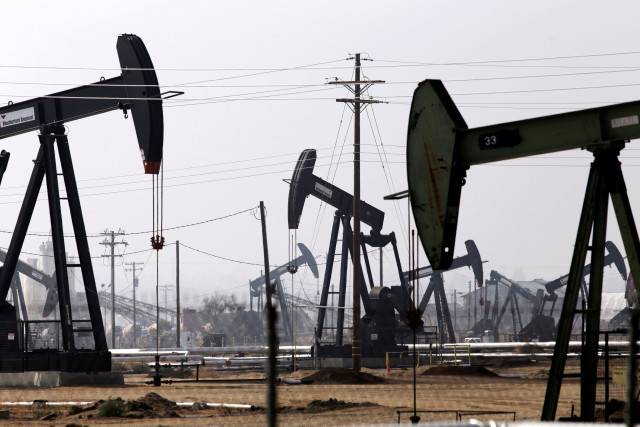Oil slips after restrictions to counter Omicron variant
Number of infections mounts in South Korea, Singapore, Australia

Oil prices eased after early gains on Thursday after measures by some governments to slow the spread of the Omicron coronavirus variant, though losses were capped by positive comments from vaccine makers about the efficacy of their jabs.
Brent crude futures fell $0.47, or 0.6%, to $75.35 a barrel by 1004 GMT after touching a peak of $76.70. US West Texas Intermediate (WTI) crude futures fell $0.31, or 0.4%, to $72.05 after a session high of $73.34.
"Although laboratory tests showed that the Pfizer vaccine has a neutralising effect on Omicron ... new measures are being introduced to try to stop the spread of the virus," said Tamas Varga of oil brokerage PVM.
British Prime Minister Boris Johnson imposed tougher Covid-19 restrictions in England on Wednesday, saying people should work from home where possible and wear masks in public places and show Covid-19 vaccine passes for entry to certain events and venues.
Denmark also plans new restrictions, including closure of restaurants, bars and schools, while China has halted group tourist trips from Guangdong.
South Korea has registered record infections while cases remain elevated in Singapore and Australia.
"Oil demand is thus unlikely to escape completely unscathed, though the effects will probably not be nearly as serious as initially feared," Commerzbank said.
Markets were buoyed by comments from BioNTech and Pfizer that a three-shot course of their Covid-19 vaccine could protect against infection from the Omicron variant.
The Omicron outbreak sparked a 16% slump in Brent prices from November 25 to December 1. More than half of the drop has been recouped this week, but analysts say a further recovery could be limited until Omicron's impact is clearer.
US inventory data released on Wednesday also weighed on prices.
Energy Information Administration (EIA) data showed that crude inventories were down by 240,000 barrels last week, much less than analysts in a Reuters poll had expected, with stocks at the Cushing delivery hub in Oklahoma rising by 2.4 million barrels.
Fuel stocks also rose by a combined 6.6 million barrels, the data showed.



















COMMENTS
Comments are moderated and generally will be posted if they are on-topic and not abusive.
For more information, please see our Comments FAQ